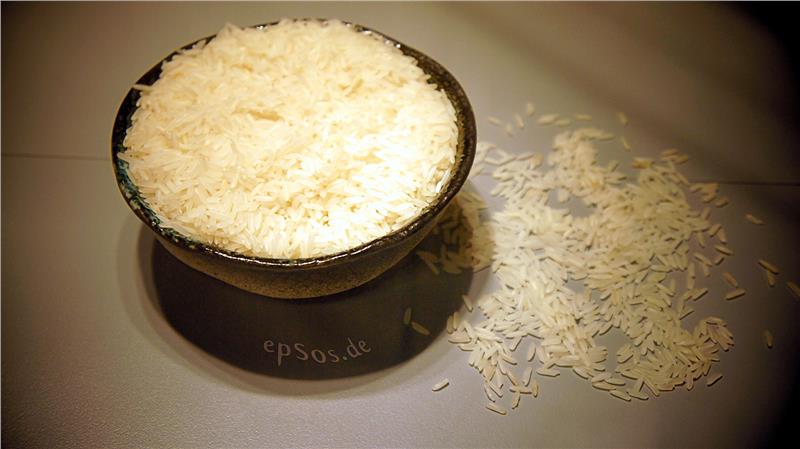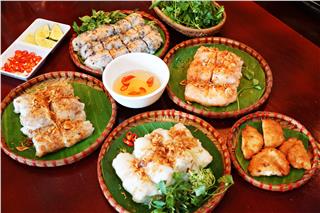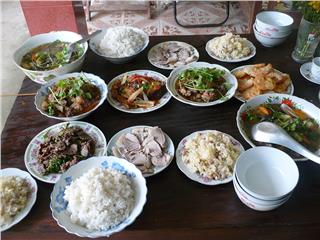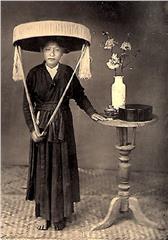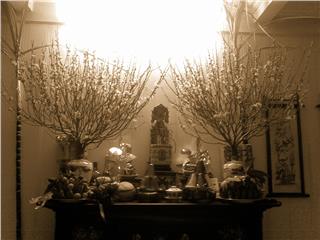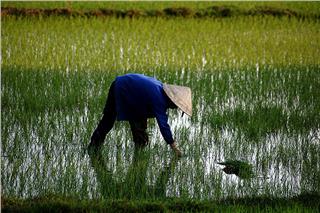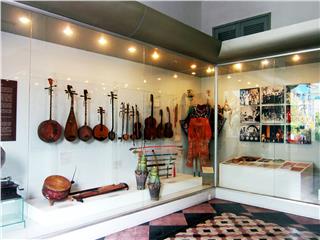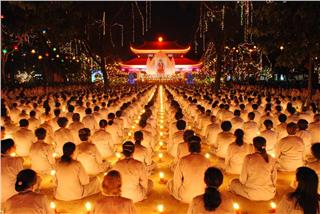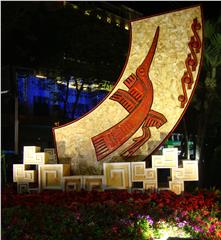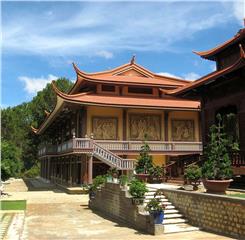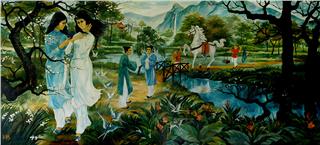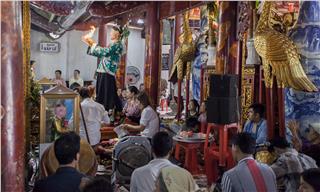Vietnam food culture is formed in the natural lifestyle. It is not just a feature of material culture, but also a spiritual feature. Through the features of cuisine, people’s qualification and dignities, etiquettes and customs in food will be reflected.
Vietnam is an agriculture-based country, thus, Vietnam food culture is influenced by the Wet Rice Civilization for thousands of years. Rice plays an important role in life of Vietnamese people. Besides, as being located in South East Asia with favorable conditions of nature, climate and geography, Vietnamese people has been produce an abundance of eatables, which provides good conditions for the creativity of cuisine in Vietnam. In the course of building and developing the country, Vietnam suffered from a series of long-lasting wars and dominations, especially a 1000-year Chinese domination, and the French colonialism, the food culture of Vietnam was influenced and more diversified. Food of Vietnamese became more sophisticated and various, partly based on the Chinese cuisine, but remained its own unique features of Vietnam. It was the colonialism of the French contributed the diversity of Vietnam food culture. Vietnamese sometimes wonder why the Western people can survive by eating bread day by day. Most tourists coming to Vietnam are so surprised at the presence of rice and many dishes related to rice, which makes the outstanding of features in Vietnam food. Many pagodas and temples in Vietnam use rice for worshipping, as it is believed that rice comes from the Mother Goddess Worship. Many major Vietnamese dishes and snacks are made from rice such as rice porridge, steamed rice, glutinous rice cake, Banh Chung, especially plain rice which is the main dish in Vietnamese daily meal. In addition, Pho is made from rice. It means that rice is the center of dishes in Vietnamese cuisine.
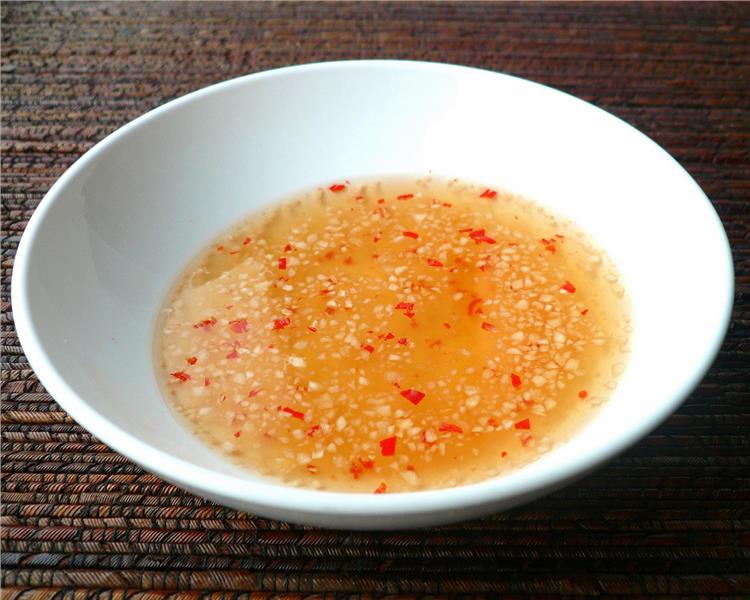
Vietnamese food also expresses the mental life of Vietnamese people. Vietnamese people have their own way to enjoy daily meals. All dishes of a meal will be laid on the tray at the same time with a small bowl of fish sauce or soy sauce in the center of the tray. By this way, a typical Vietnamese daily meal will have the presence of all family members. While eating together, they can share their opinions about some of dishes; even other daily topics are also discussed in the eating time. If having chances to explore the Vietnam food culture, you might really excited when learning about sauces in meals of Vietnamese people. You might be astonished when witnessing all family members using a bowl of fish sauce together, which creates the unique characteristic of Vietnamese food culture. Some people think that the bowl of fish sauce reflects the solidarity. Some others believe that fish sauce makes great contribution in forming the cultural feature of Vietnamese food.
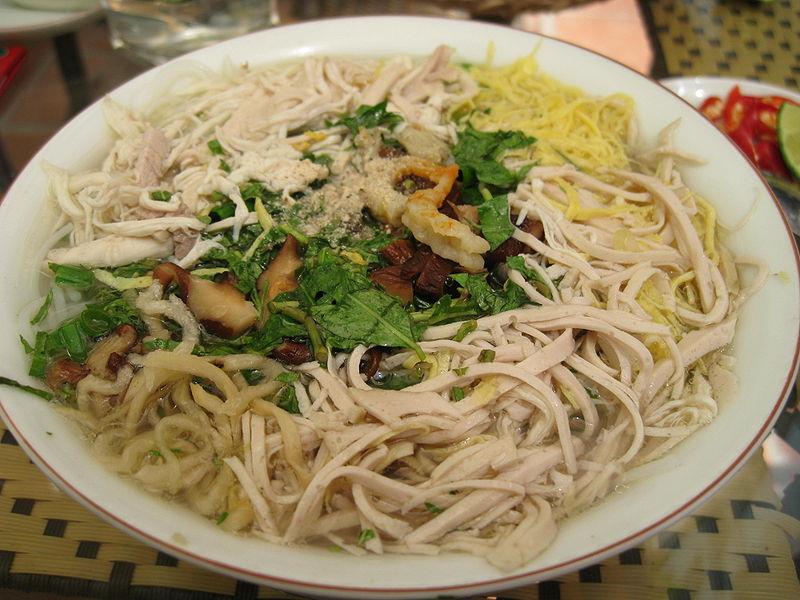
Vietnamese food culture varies by regions from the north to the south. In Northern Vietnam, Vietnamese food is characterized by light and balanced flavors as the harmonic combination of many ingredients. Northerners has been using many kinds of meats like pork, beef, and chicken to cook; besides, some kinds of freshwater fish, crustaceans, and other mollusks like shrimps, crabs, and oysters, etc. Many famous dishes of Vietnam are cooked with these ingredients such as Bun Rieu. Northern Vietnam is seen to be the cradle of Vietnamese civilization in general and Vietnamese cuisine in particular with many notable dishes like Pho, Bun Rieu, Bun Thang, Bun Cha, Banh Cuon, etc. Then, food culture in Northern Vietnam became popular in Central and Southern Vietnam with suitable flavors in each regions. In Central Vietnam, the topography is characterized by mountains, thus, the regional cuisine of Central Vietnam is famous for its spicy food, which differs from two other parts with mostly non-spicy food. Hue cuisine is typical Central Vietnam’s food culture. Dishes of Hue cuisine are decorative and colorful, which expresses the influence of Vietnamese royal cuisine in the feudal period. Food in the region is often decorated sophisticatedly and used with chili peppers and shrimp sauces, namely, Bun Bo Hue, Banh xeo, or Banh beo, etc. In Southern Vietnam, the region is characterized by warm weather and fertile soil, which creates favorable conditions for planting a variety of fruit, vegetables and livestock. Thus, food in the region is often added with garlic, shallots and fresh herbs. Particularly, Southerners are favored of sugar; they add sugar in almost dishes. Here, there is also an influence of western and Asian cuisines on southern food, such as influences from Chinese, Indian, French, and Thailand.
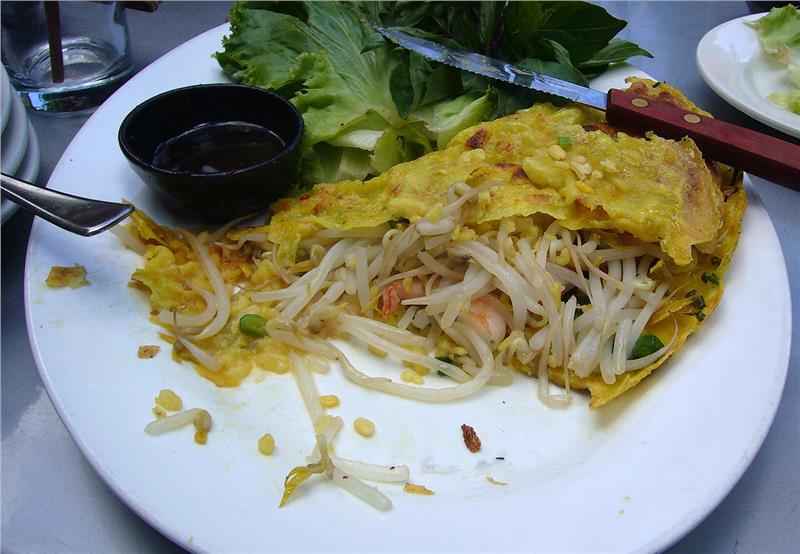
Vietnamese food culture put the spirit on top priority with daily meals being seen as family reunion meal in which people gather happily after a hard working day.
